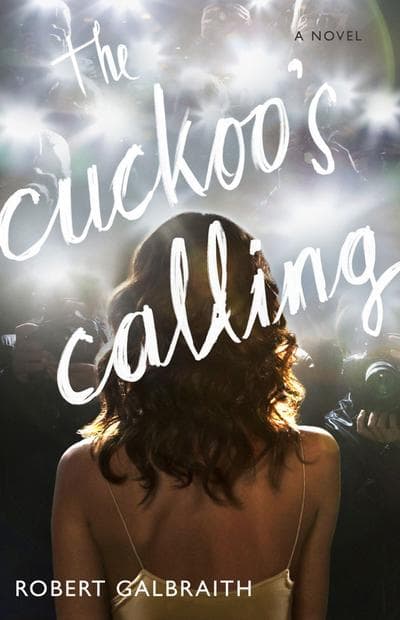Advertisement
Review: J.K. Rowling’s Plodding But Fun ‘Cuckoo’s Calling’
It’s a freezing midnight in London. Police and paparazzi have gathered because a supermodel has fallen to her death from her apartment. The cops rule it a suicide, but the novel “The Cuckoo’s Calling” really begins when the woman’s brother walks into the office of Cormoran Strike and asks the down-on-his-luck private eye to investigate whether she was killed.
You don’t have to be Sherlock Holmes to guess that the detective finds that the model has been murdered.

The real mystery of this plodding but amusing novel was the true identity of author Robert Galbraith, whom publisher Mulholland Books claimed was “a former plainclothes Royal Military Police investigator who had left in 2003 to work in the civilian security industry.” The book sold just 8,500 copies, before Galbraith was unmasked a couple weeks back as “Harry Potter” author J.K. Rowling and the book shot to the top of bestseller lists.
The central themes of “The Cuckoo’s Calling” are fame and wealth, how they change people, how they strain relationships, how they shatter trust. After the murderer, the book’s primary villains are paparazzi. Even the private detective turns out to be the illegitimate son of a rock star.
One can’t help wondering how personal all this is for Rowling. Pretending to be Robert Galbraith was itself a way to shed her fame and, she’s said, “go back to the beginning of a writing career … to receive totally unvarnished feedback.” She sued her law firm for breaching her confidentiality and outing her as the author.
In the book, Strike methodically interviews the many unlikeable rich family members and bratty fashion world friends of the victim as well as the thick-witted cops. It feels like Rowling has read a shelf of P.D. James and Agatha Christie tomes and wanted to prove that she could write their sort of drawing room mystery by the book, clichés and all. If you liked the “Harry Potter” series, you’ll wonder where the wit and inventiveness, the charismatic characters and page-turner cliffhangers went.
The central heroes of “The Cuckoo’s Calling”—Strike and his secretary Robin—feel like recycled crime story stereotypes. Robin, a temp who begins the novel way too enamored with her new engagement ring, turns out to be a plucky, if prim dame with a natural instinct for detecting.
Strike is supposed to be a hardboiled bloke, a crack military police detective who retired from the service after he got his leg blown off in Afghanistan. He’s recently separated from his longtime girlfriend and is hiding from bill collectors. Rowling seems to be aiming for something like Ian Rankin’s Inspector Rebus. But rather than dissolute, gruff, hard drinking and cynical, Strike comes across as a disheveled teddy bear with a (partial) Oxford education.
After the catchy crime scene beginning, the story pursues the usual twists and red herrings, taking a long while to heat up again. There are the pleasures of Rowling using the F-word and throwing out oddball sentences like “Strike deduced that he had saved her by grabbing a substantial part of her left breast.” As Strike closes in on the murderer, the last quarter of the 455-page story builds momentum. The solution is rather elaborate in that credulity-straining P.D. James manner. But it’s fun getting there.
This program aired on August 1, 2013. The audio for this program is not available.
